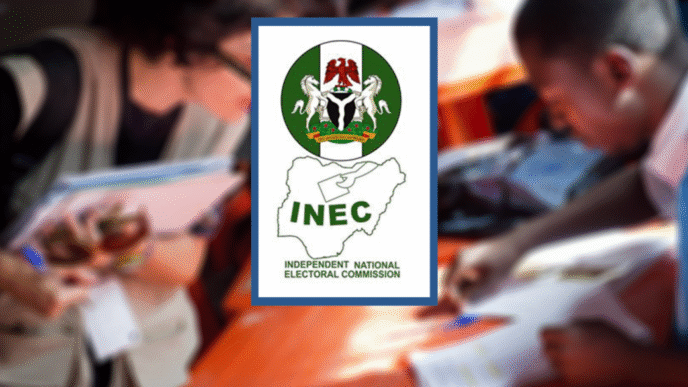In a groundbreaking fiscal reform initiative, the Chairman of the Presidential Committee on Fiscal Policy and Tax Reforms, Dr. Taiwo Oyedele, has revealed that 98 percent of Nigerians will either pay significantly reduced personal income tax or be completely exempted from taxation starting in January 2026.
The announcement was made during the 31st Nigerian Economic Summit (NES31) held in Abuja, where Oyedele outlined the Federal Government’s strategy to overhaul the country’s tax framework, ensuring fairness, transparency, and relief for low- and middle-income earners.
A Bold Step Toward Fairer Taxation
According to Oyedele, the forthcoming tax structure is designed to protect vulnerable citizens from excessive taxation while redistributing the burden to high-income earners and corporations that have the capacity to pay more.
“From January 2026, around 98 percent of Nigerians will either pay less or nothing in personal income tax. You cannot tax poverty. The goal is to create a fair and inclusive system that does not punish the poor for being poor,” Oyedele declared at the summit.
The reform will also lower corporate tax rates to stimulate economic activity, with small companies earning ₦100 million or less annually to be exempted from corporate tax altogether. Larger firms will see a reduction in the standard corporate tax rate from 30 percent to 25 percent, according to the committee’s framework.
The Key Highlights of the Proposed Tax Reform
- 98% of Nigerians to be exempted or pay less: The policy will primarily target low- and middle-income earners, shielding them from direct taxation.
- New income thresholds: Tax exemptions will apply to those earning below a yet-to-be-announced income floor aligned with the national poverty and median income benchmarks.
- Corporate tax reliefs: Small and medium enterprises (SMEs) with an annual turnover below ₦100 million will enjoy 0% corporate income tax.
- Top 2% to pay more: High-income individuals—constituting less than 2% of the population—will bear a proportionally higher tax responsibility.
- Simplified compliance: The reforms will reduce bureaucracy and harmonize multiple tax collection agencies for efficiency.
Oyedele stressed that the new structure will make Nigeria’s tax system simpler, fairer, and growth-oriented, adding that it is “not about taxing more people, but taxing more effectively.”
Background: Fixing a Broken Tax System
Nigeria’s tax-to-GDP ratio currently hovers around 10 percent, one of the lowest in Africa, compared to an average of 20 percent across the continent. For years, experts have criticized the system as inefficient, fragmented, and unfairly skewed against low-income workers.
The Presidential Fiscal Policy and Tax Reforms Committee was inaugurated in August 2023 by President Bola Ahmed Tinubu to simplify the country’s tax structure, expand the base, and promote fiscal equity. The committee’s work has since produced several reform bills, including the Nigeria Tax Act (NTA), Nigeria Tax Administration Act (NTAA), Nigeria Revenue Service Act (NRSA), and the Joint Revenue Board Act (JRBA).
The new regime, set to take effect in January 2026, aims to harmonize tax collection, reduce duplication among agencies, and expand the formal tax base without overburdening ordinary Nigerians.
Economic Rationale Behind the Reform
The guiding philosophy of Oyedele’s reform proposal is that “you cannot tax poverty into prosperity.”
By removing tax pressure from the majority and creating incentives for small businesses to formalize, the policy aims to boost consumer spending, encourage entrepreneurship, and attract investment.
According to Oyedele, the reform will help achieve several objectives:
- Increase disposable income: Workers in both public and private sectors earning low wages will see their take-home pay rise.
- Encourage business formalization: Lower corporate taxes and simpler registration processes will encourage informal businesses to join the formal economy.
- Ensure fairness: Wealthier individuals and large corporations will pay more in line with their earning capacity.
- Enhance compliance: Simplified tax procedures will reduce evasion and improve transparency.
- Drive economic growth: With more spending power and reduced red tape, local industries could thrive.
“The essence is to make taxation a tool for growth, not a burden,” Oyedele added.
Potential Impact on Nigerians
If implemented effectively, the reform could usher in one of the most significant tax reliefs in Nigeria’s modern history. Analysts predict several potential benefits:
- Higher purchasing power: With more take-home pay, workers may spend more on goods and services, stimulating local production.
- Reduced inflationary stress: While not a direct anti-inflation tool, increased disposable income could cushion citizens from rising costs.
- Increased productivity: Businesses reinvesting tax savings may create more jobs and expand operations.
- Broader economic inclusion: Informal workers could find it easier to register and access credit with formalized tax identities.
However, these benefits depend heavily on policy execution and fiscal discipline.
Concerns Over Revenue Shortfall
While the reform has been widely welcomed, some experts and state governments are raising concerns over potential revenue loss. Since personal income tax forms a major part of internally generated revenue (IGR) for many states, exemptions could initially reduce their fiscal inflows.
To address this, Oyedele hinted that increased efficiency, digital compliance systems, and broader economic activity will offset potential shortfalls. He noted that the government is also exploring property taxes, luxury taxes, and digital economy levies to diversify revenue streams.
“The idea is not to deprive states of funds but to create a more sustainable revenue model that grows with the economy,” Oyedele explained.
Implementation Challenges Ahead
Despite the optimism, implementing such an ambitious tax overhaul will face hurdles:
- Data accuracy: The lack of reliable income data could complicate defining who qualifies for exemption.
- Administrative coordination: Aligning federal and state tax agencies remains a significant challenge.
- Compliance and enforcement: Ensuring that high-income earners do not exploit loopholes will require advanced auditing systems.
- Political resistance: Wealthy groups and vested interests could push back against higher taxation.
Nevertheless, Oyedele maintained that the committee is committed to transparent engagement with stakeholders to ensure smooth rollout.
Reactions from Stakeholders
The announcement has triggered mixed reactions across economic circles.
The Nigeria Employers’ Consultative Association (NECA) praised the policy as a “timely relief for struggling households,” urging speedy passage of the accompanying tax codes.
However, some state finance commissioners expressed concern that the changes could erode local revenues without an alternative framework in place.
Financial analysts at CardinalStone Partners described the reform as “progressive but risky,” warning that without disciplined fiscal management, Nigeria could face short-term funding gaps.
Meanwhile, the Nigeria Labour Congress (NLC) and Trade Union Congress (TUC) have welcomed the move, calling it “a long-overdue recognition of workers’ realities.”
Broader Significance for Nigeria’s Economy
The 2026 tax reform represents a critical part of the Tinubu administration’s broader agenda to rebuild economic confidence and create an enabling environment for businesses.
If executed effectively, it could mark a turning point for Nigeria’s fiscal landscape—boosting compliance, improving equity, and repositioning the country as a competitive investment destination.
Beyond immediate relief, the reform’s long-term success will depend on how well the government balances tax cuts with fiscal responsibility, widening the base while maintaining social investments in infrastructure, education, and healthcare.
Outlook
With less than three months before the 2026 fiscal year, all eyes are on the Federal Government to unveil detailed guidelines, income thresholds, and implementation frameworks.
Tax experts believe the reform’s success will hinge on clarity, accountability, and collaboration between the Federal Inland Revenue Service (FIRS), State Internal Revenue Services, and private sector partners.
For millions of Nigerians, Oyedele’s promise offers a glimmer of hope in an economy battling inflation and cost-of-living pressures. Whether that promise translates into tangible relief will depend on the political will to see the reforms through.
As the countdown to January 2026 begins, one thing is certain: Nigeria’s tax landscape is about to change—potentially for the better.














